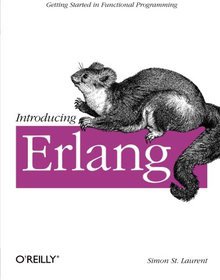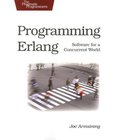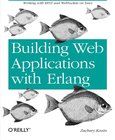Introducing Erlang
Getting Started in Functional Programming

Book Details:
| Publisher: | O'Reilly Media |
| Series: | OReilly , Getting Started |
| Author: | Simon St.Laurent |
| Edition: | 1 |
| ISBN-10: | 1449331769 |
| ISBN-13: | 9781449331764 |
| Pages: | 204 |
| Published: | Jan 19 2013 |
| Posted: | Nov 19 2014 |
| Language: | English |
| Book format: | |
| Book size: | 7.74 MB |
Book Description:
If you're new to Erlang, its functional style can seem difficult, but with help from this hands-on introduction, you'll scale the learning curve and discover how enjoyable, powerful, and fun this language can be.Author Simon St. Laurent shows you how to write simple Erlang programs by teaching you one basic skill at a time. You'll learn about pattern matching, recursion, message passing, process-oriented programming, and establishing pathways for data rather than telling it where to go. By the end of your journey, you'll understand why Erlang is ideal for concurrency and resilience.Get cozy with Erlang's shell, its command line interface Become familiar with Erlang's basic structures by working with numbers Discover atoms, pattern matching, and guards: the foundations of your program structure Delve into the heart of Erlang processing with recursion, strings, lists, and higher-order functions Create processes, send messages among them, and apply pattern matching to incoming messages Store and manipulate structured data with Erlang Term Storage and the Mnesia database Learn about Open Telecom Platform, Erlang's open source libraries and tools
Download Link:
Related Books:
Learn You Some Erlang for Great Good
A Beginner's Guide
Erlang is the language of choice for programmers who want to write robust, concurrent applications, but its strange syntax and functional design can intimidate the uninitiated. Luckily, there's a new weapon in the battle against Erlang-phobia: Learn You Some Erlang for Great Good!Erlang maestro Fred Hebert starts slow and eases you into the basics: You'll learn about Erlang's unorthodox syntax, its data structures, its type system (or lack thereof!), and basic functional programming techniques. Once you've wrapped your head around the simple stuff, you'll tackle the real meat-and-potatoes of the language: concurrency, distributed computing, hot code loading, and all the other dark magic that makes Erlang such a hot topic among today's savvy developer...
Programming Erlang
Software for a Concurrent World
Erlang solves one of the most pressing problems facing developers today: how to write reliable, concurrent, high-performance systems. It's used worldwide by companies who need to produce reliable, efficient, and scalable applications. Invest in learning Erlang now. Moore's Law is the observation that the amount you can do on a single chip doubles every two years. But Moore's Law is taking a detour. Rather than producing faster and faster processors, companies such as Intel and AMD are producing multi-core devices: single chips containing two, four, or more processors. If your programs aren't concurrent, they'll only run on a single processor at a time. Your users will think that your code is slow. Erlang is a programming language designed for buildin...
Building Web Applications with Erlang
Working with REST and Web Sockets on Yaws
Why choose Erlang for web applications? Discover the answer hands-on by building a simple web service with this book. If you're an experienced web developer who knows basic Erlang, you'll learn how to work with REST, dynamic content, web sockets, and concurrency through several examples. In the process, you'll see first-hand that Erlang is ideal for building business-critical services. Erlang was designed for fault-tolerant, non-stop telecom systems, and building applications with it requires a large set of skills. By the end of the book, you'll have the information you need to build a basic web service and get it running. Explore the power of Erlang and REST for building web services Serve static and dynamic content with the Yaws web server Use diff...
2007 - 2021 © eBooks-IT.org



